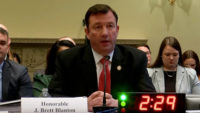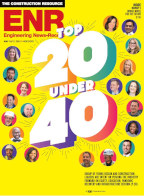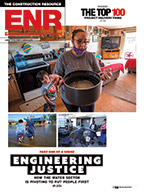Warsaw, Poland June 11, 2005
 |
| ASCE President William P. Henry has been traveling to discuss anti-corruption initiatives. |
Im here now in Warsaw, the second stop on my three-city tour, to share information about the American Society of Civil Engineers (ASCE) anti-corruption initiative. This time I addressed a group of organizations that together represent Polish civil engineers. I told them how ASCE has been contacting engineering organizations around the world for input and support in compiling principles of conduct for combating bribery, fraud and corruption. I stressed that this activity encompasses all engineering societies, not just civil engineers.
And then came the hard part. In the debate following my presentation, some tough questions came up about how to define bribery and corruption. For instance, how does a country define legal contributions to political entities, as we do in the U.S.A.? The Polish engineers seem to feel that the definition needs to be addressed within each individual culture. The audience recognized that, while certain ethics and rules regarding conduct may work well for our society and other Western countries, China and other nations may find them difficult to accept.
I knew what they were talking about because I had been talking ethics in China in December. Following my presentation, Chinese engineers told me that it would be very difficult for them to join us in zero tolerance towards bribery, fraud and corruption at this time.
On the other hand, the Chinese government had just recently jailed 16 officials on a project in Northern China and charged them with corruption. So they seemed too recognize the need to crack down on bribery and fraud, too.
One audience member in Poland noted that there is a different pathology in Poland. The Polish have developed laws focused on procedures and price competition, but lower prices sometimes drives business, which often results in lower quality. Even when laws are in place, he said, they do not necessarily solve the problem.
I explained that in the U.S., almost all engineering services procurement is qualification-based. That means we select firms based first on experience and qualification, and then we look at scope and budget.
Finally, when it comes to taking a stand, laws can be helpful, but it is the individual who ultimately makes the decision about his or her own actions, even though the issues are addressed in the laws. Individual professional engineers make the decision, hopefully the right decision. That is why why zero tolerance for bribery, fraud and corruption must become an accepted standard of individual engineers behavior. On to my next and last stopRome.
Rome, Italy June 14, 2005
In Rome, Italy's professional engineering organization, the Consiglio Nazionale degli Ingegneri (CNI), hosted our meeting at the Cassa Forense in the Vatican. The engineering societies representatives agreed to support the principles of professional conduct and zero tolerance towards bribery, fraud and corruption.
We also heard from non-engineer who spoke about the relationship of time and ethics.
Monsignor Zagnoli, director of the Vatican Museums, described ethics as one of the key elements of society. People must be acknowledged, recognized and thanked for the work they provide for the good of humanity, he said. And it isn't easy to find the time and space to reflect on ones actions. In our accelerated time, he said, time and space have lost their dimensions and we have lost time for reflection. He praised everyone involved in organizing the meeting because it gave engineering professionals the opportunity to reflect together.
Sergio Polese, President of CNI, agreed that there is a need for updating the current code of ethics due to new issues affecting professionals.
Participants brought up the same challenging questions we encountered in our earlier sessions in Warsaw and Cairo: How can we develop a plan that will be valid for the whole world? How can we support and encourage an engineer to choose to follow ethical guidelines at the risk of losing his/her job that supports his/her family? How can we help develop a set of principles and guidelines that work for all cultures that can promote the role of engineers in support of sustainable development to meet human needs?
There were no immediate comprehensive answers, but most everyone agreed that some of the answer must be sought by carrying the message of ethics to the place where engineers are educated--to universities.





Post a comment to this article
Report Abusive Comment